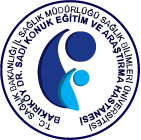ABSTRACT
Objective:
This study was organized to determine the childhood traumatic experiences and affecting sociodemographic factors, in adolescents in a low-incomedistrict, in Ankara.
Methods:
The healthy 1007 adolescents, ages between 14-18 years who attended to pediatrics outpatient clinics between April 2013-July 2014 were included in the study. The abuse experiences in children and adolescents younger than 18 years were determined by using ‘Childhood Trauma Questionnaire’ which has a high validity and reliability. Besides, ‘Personal Information Form’ was used to collect data about sociodemographic characteristics. Adolescents were asked to answer honestly and intimately and were promised to keep their answers’ confidential. High scores obtained from the scales were considered unfavorable.
Results:
Median age of the study group was 16 years (14-18), 62.3% were girls, all had low income level. Adolescents living in large families and with their fathers alive had high CTQ scores (p<0.05), however, those with love and peace in their family had low CTQ scores (p<0.05).
Conclusion:
The scores obtained from the CTQ, which was used for predicting traumatic experiences, were higher in the adolescents in our district compared to other studies conducted in our country. Especially those adolescents with their fathers alive and those living in large families were determined to have a higher risk in terms of abuse. For this reason, we think that the education of the residents of the low-income district, their fathers and the elders of the family are very important in reducing the abuse of children. We think that the widespread and strong education of families living in districts with similar characteristics in our district and setting a good social support system will protect children from being abused and its long term effects. This is the first study conducted in adolescents in our country that examines childhood traumatic experiences by using CTQ.



